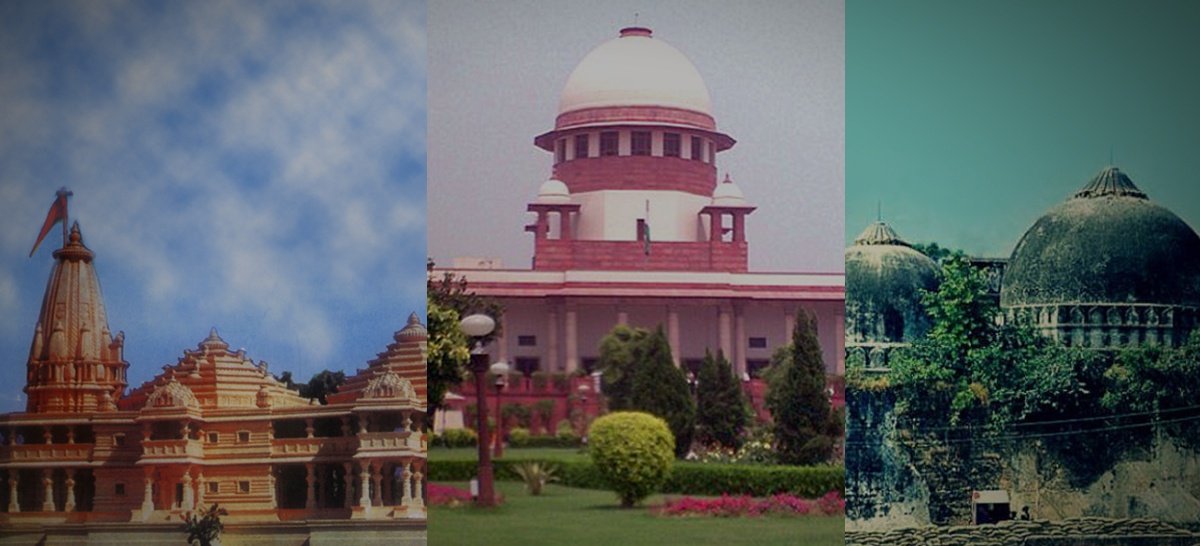According to the settlement proposed by the parties, the Sunni Central Waqf Board would be willing to give up its claim on the disputed 2.77 acres of land if four conditions were met.
Some parties from both the Hindu and Muslim parties, one of which the lead petitioner, the Sunni Central Waqf Board, told the Supreme Court through an arbitration panel on Wednesday that they could agree to a settlement in which a temple was built at the disputed site Will go. In lieu of some security measures for mosques across the country.
People familiar with the matter said on condition of anonymity that the proposal, submitted to the top court by the mediators — retired SC judge justice FMI Kalifulla, senior advocate Sriram Panchu and spiritual leader Sri Sri Ravi Shankar — effectively offers a possible road map for the court as it prepares to deliver a verdict in the decades-long dispute.
According to the settlement proposed by the parties, the Sunni Central Waqf Board would be willing to give up its claim on the disputed 2.77-acre land if four conditions were met. First, the status quo of all religious sites in India be maintained as per how they existed at the time of Independence. Second, other existing mosques in Ayodhya be renovated by the government. Third, the Waqf board be allowed to build a mosque at a suitable place other than the disputed site. And fourth, prayers be allowed at several mosques across the country where access is restricted due to norms set by the Archaeological Survey of India.
To be sure, two of the main parties from the Hindu side, the infant deity Ram Lalla and the Ram Janmabhoomi Nyas, have not signed the settlement. Nor has the Jamiat Ulema-e-Hind from the Muslim side. In other words, most of the hardline groups on either side of the case are not on board with the settlement plan submitted by the mediators.
The settlement also asked for a national institution for harmony between communities to be set up in Ayodhya.
In September 2010, the Allahabad high court ordered trifurcation of the disputed land among the Sunni Waqf Board, the Nirmohi Akhara and representatives of Ram Lalla. Fourteen appeals were filed in the top court against the high court verdict.
The Supreme Court in March 2019 referred the matter to the three-member mediation panel. The proceedings did not result in any settlement, the mediation panel said in August. But the efforts were revived in September, and the mediation panel submitted its final report to the top court on October 16 (Wednesday), the last day of hearing.
“In no way can it said that the Sunni Waqf Board has withdrawn its claim from the petition. The trial has been completed and the judgment is reserved. But in a case as important and complicated as this, the road map could prove to be an important tool towards reaching a verdict that resolves the issue,” said a person familiar with the developments who asked not to be named.
Media reports early on Thursday suggested that the Sunni Central Waqf Board had in a dramatic twist withdrawn its petition in the matter. To this, Sunni Waqf Board advocate Zafaryab Jilani clarified: “Any application of withdrawal will be given in court. No application has been filed.”
MR Shamshad, the advocate for Iqbal Ansari, one of the individual parties to the case, said such an agreement will have no bearing on the matter. “Even if the board [Sunni Sunni Central Waqf Board] has agreed to something, it is of no consequence. This case is being contested by six other [individual Muslim] parties… Sunni Board is one party, and it has no more locus than any other individual Muslim party.”
The decision is expected to come by 17 November, when Chief Justice of India (CJI) Ranjan Gogoi, who heads the Constitution Bench, is retiring.

